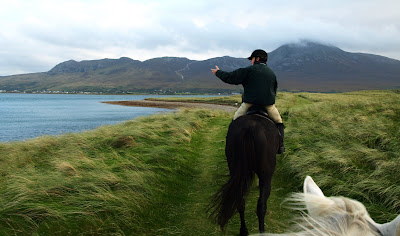 The last time I had such a very sore bottom was when I was 13 and had been bucked off my pony at riding school: I ended up (sorry) having to have physio to the area in question administered by a handsome young masseur, and the whole experience was hideously embarrassing. If I have to have a re-run of that treatment, this time it will be - hmm, just as embarrassing, actually. I think the window of opportunity when I could have bared my bot with impunity, possibly even pride, was more of a port-hole, really.
The last time I had such a very sore bottom was when I was 13 and had been bucked off my pony at riding school: I ended up (sorry) having to have physio to the area in question administered by a handsome young masseur, and the whole experience was hideously embarrassing. If I have to have a re-run of that treatment, this time it will be - hmm, just as embarrassing, actually. I think the window of opportunity when I could have bared my bot with impunity, possibly even pride, was more of a port-hole, really.Most of my recent injuries have been down to clumsiness and/or stupidity, but for a large part of my life they've been equine-induced. It comes with the territory when you spend a lot of time with a large animal with a small brain and a super-sensitive flight instinct. I've been stamped on and trampled, bitten and kicked, bolted with and bucked off - but not, thankfully, rolled on, because that's when things can get very nasty. I bear no grudges, that's just horses for you, and they've given me far more pleasure than pain.
I've done my time trailing round in circles at riding schools; been on a glorious high-country trek in North Canterbury as a teenager that eventually led to my starting this travel-writing lark; worked as a groom in South Australia exercising flighty polo ponies and fighting off giant spiders; and then again in England looking after a handful of hunters and spending every day riding around the most beautiful countryside, part of a community that still welcomes me.
 I went on a brilliant cattle drive back in South Australia, where we spent five days clopping peacefully through the Outback enjoying the detail of that colour-saturated scenery, which even at a walking pace changed continuously. Here in New Zealand I battled for a whole week with an eager thoroughbred who wanted to be at the front, please of a back-country trek with 80 other riders as well as walkers and mountain-bikers, an annual charity event that gave us access to private land and looked after us brilliantly in the evenings with entertainment, excellent food, hot showers and massages. I've cantered along the beach in the Bay of Plenty and galloped through Lord of the Rings country, indulging in a private Rider of Rohan fantasy down near Queenstown.
I went on a brilliant cattle drive back in South Australia, where we spent five days clopping peacefully through the Outback enjoying the detail of that colour-saturated scenery, which even at a walking pace changed continuously. Here in New Zealand I battled for a whole week with an eager thoroughbred who wanted to be at the front, please of a back-country trek with 80 other riders as well as walkers and mountain-bikers, an annual charity event that gave us access to private land and looked after us brilliantly in the evenings with entertainment, excellent food, hot showers and massages. I've cantered along the beach in the Bay of Plenty and galloped through Lord of the Rings country, indulging in a private Rider of Rohan fantasy down near Queenstown. And in Ireland last year I went for a ride with Attila the Hun-garian and a couple of other aficionados along the beach near Westport. We splashed through the shallows along the Atlantic coast on a brisk afternoon, the sun shining on us while cloud swirled around nearby Creagh Patrick, a 770m hill surmounted by a tiny stone church that thousands of bare-footed pilgrims climb to on Reek Sunday, the last Sunday in July. Out in the bay were 300 islands, one owned by John Lennon ('s estate), where the treacherous current made picturesque lighthouses a necessity, and white boats sparkled against a background of dark grey cloud. It was wonderful to get out in the fresh air and do something active; and when we stopped off at the pub on the way back, and Lesley suggested a glass of hot port - because every pub in Ireland apparently has a kettle behind the bar - well, that was the icing on the cake.
And in Ireland last year I went for a ride with Attila the Hun-garian and a couple of other aficionados along the beach near Westport. We splashed through the shallows along the Atlantic coast on a brisk afternoon, the sun shining on us while cloud swirled around nearby Creagh Patrick, a 770m hill surmounted by a tiny stone church that thousands of bare-footed pilgrims climb to on Reek Sunday, the last Sunday in July. Out in the bay were 300 islands, one owned by John Lennon ('s estate), where the treacherous current made picturesque lighthouses a necessity, and white boats sparkled against a background of dark grey cloud. It was wonderful to get out in the fresh air and do something active; and when we stopped off at the pub on the way back, and Lesley suggested a glass of hot port - because every pub in Ireland apparently has a kettle behind the bar - well, that was the icing on the cake.



















































